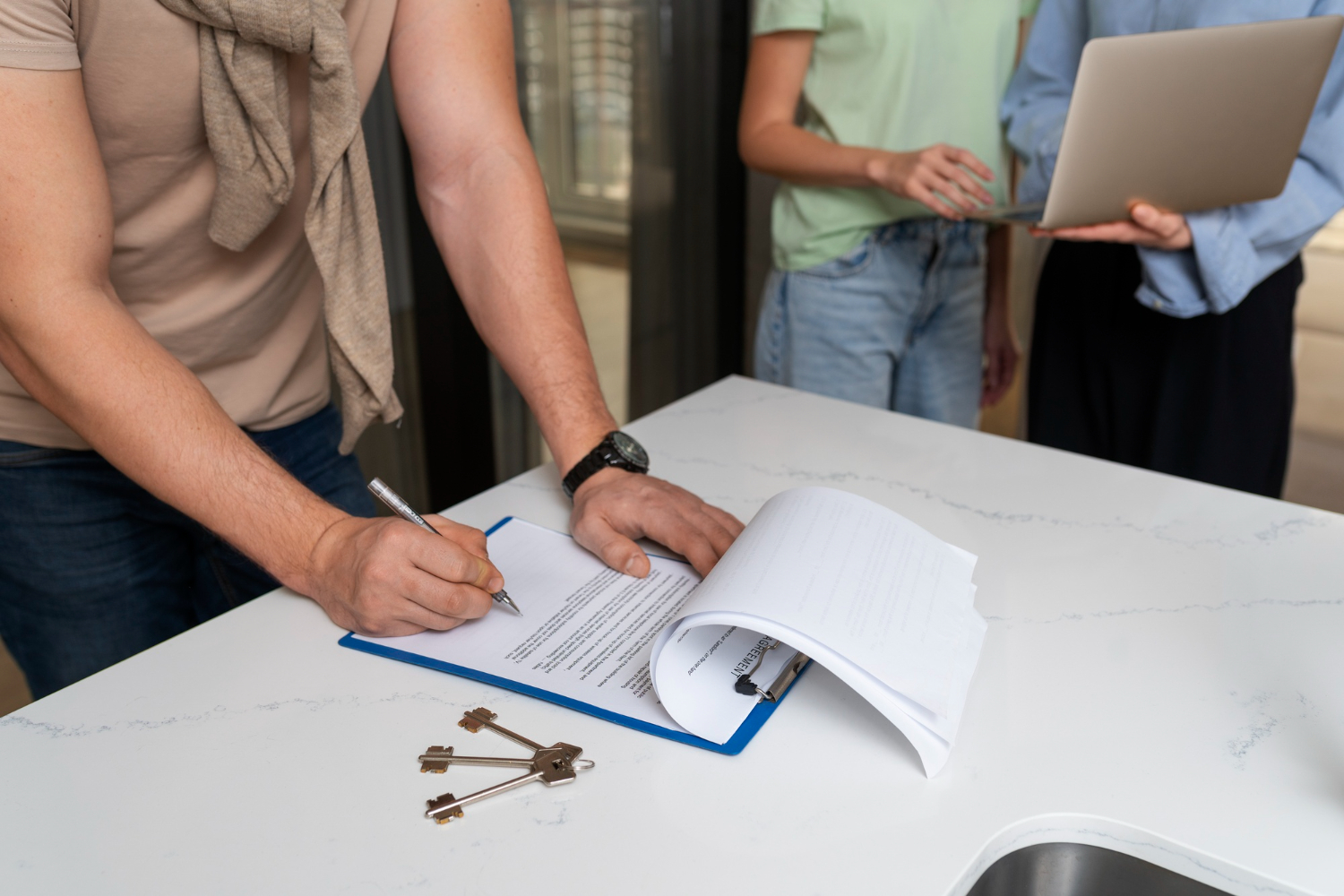1. Who should pay rent when renting through a real estate agency in France?
2. Exploring Rent Payments in France: Rules, Methods, and Legal Obligations
3. Landlord’s Rent Payment Suggestions in France: Can They Impose a Payment Method?
4. Credit Card Payment for Rent in France: Availability and Limitations
5. Proving Past Rent Payments in France: Rent Receipts and Certificates of Rent
6. Rent Payment for Apartment Sharing in France: Solidarity Clause and Responsibility
7. Legally-Mandated Rent Due Dates in France: Frequency and Guidelines
8. Late payments and dwelling issues
If you’re planning to rent an apartment in France, it can be quite an exciting and fulfilling experience, regardless of whether you’re an expat, student, or a resident. However, before moving into your rental apartment, you should know some crucial information about paying rent and security deposits as a tenant.
In this regard, we have got you covered with everything you need to know about rent and rental deposit payments, including the available options and the legal requirements.
Did you know that the owner of a vacant or furnished rental property is generally accessible to set the rent for their tenants? But, if the property is located in a municipality with a high demand for rental housing, rent control may be enforced.
In such municipalities, the rent is limited when a new tenant moves in and when the lease is renewed for the same tenant.
Find out if your dwelling is in a tense area.
1. Who should pay rent when renting through a real estate agency in France?
When renting an apartment in France, it’s essential to understand the payment terms and schedules. Typically, the tenant is responsible for paying rent and security deposit directly to the landlord, even if they rented through a real estate agency.
However, if a property management company manages your apartment, you must pay them your rent and security deposit. Your lease agreement provides more information about the payment terms and schedules.
Make sure to read it carefully and understand the amount of rent, when it’s due, and how to make the payment.
2. Exploring Rent Payments in France: Rules, Methods, and Legal Obligations
A. Cash Payment for Rent in France: Guidelines and Proof of Payment
When it comes to paying rent in France, a few options are available. If the rent is less than €1,000, tenants can pay it in cash. Nonetheless, landlords can refuse the cash payment if they fail to provide the precise payment amount.
If paying in cash is unavoidable, tenants should request a rent receipt (quittance de loyer) from the landlord. The landlord must sign the receipt that includes the date and amount paid.
B. Bank Transfer for Rent Payment in France: Automatic Debit, Interbank Payment Title, and More
Automatic debit from the tenant’s bank account (Prélèvement automatique)
As a tenant, you have the option to provide your RIB to your landlord for a direct monthly debit. Surely, provided that both parties agree. Relevé d’Identité Bancaire (RIB) or banking ID details is a document that holds your account details and the national bank account ID or RIB number. However, to do so, you must also sign a SEPA mandate (Single Euro Payments Area) that authorizes your landlord to debit your bank account for the monthly rent directly.
This mandate replaces the tenant’s commitment to deduct their rent automatically. While some landlords prefer this payment method due to its reliability and consistency, it is essential to note that they cannot impose this payment method on their tenants.
Ultimately, the decision to use direct monthly debit lies with the tenant.
Note: The landlord has no right to charge rent from the tenant’s salary, even with his agreement.
To ensure you protect your rights as a tenant and avoid challenging situations with your landlord, learn about rental agreements, your obligations, and your tenant rights in France.
Interbank payment title (Tip SEPA)
This payment method facilitates a direct transfer of funds from the tenant’s bank account to that of the owner without any intermediaries such as credit cards, checks, or cash.
However, it is worth noting that the owner must send a Tip to the tenant, which the tenant must sign and return by post before considering the transaction complete.
Also, there are the rules to follow you should know about when using Bank Direct Debit.
D. Check Payment for Rent in France: Guidelines and Usage
It is important to note that specific protocols should be followed to ensure a smooth transaction. Firstly, it is vital to understand the rules and expectations for check payment in France. For example, you must write checks in Euros and make them payable to the landlord or property management company.
Additionally, ensure sufficient funds are in your account to cover the check, as bounced checks can result in additional fees and legal issues.
It is also recommended to keep a record of the payment, such as keeping a photocopy of the check or obtaining a receipt from the landlord, to prevent any future confusion or disputes.
3. Landlord’s Rent Payment Suggestions in France: Can They Impose a Payment Method?
The landlord can suggest various rent payment methods, including bank transfer, cash (under 1,000 €), check, automatic bank transfer, and interbank payment.
Still, it is equally imperative to note that the landlord cannot impose a payment method on the tenant. The tenant can decline the landlord’s payment suggestion and choose a different process.
Note: Landlords can only apply a deduction from the tenant’s salary to obtain their rent. Namely, if a legal decision is made and the tenant fails to pay. The law must carry out this process after obtaining necessary legal approvals.
4. Credit Card Payment for Rent in France: Availability and Limitations
It’s worth noting that not all landlords or small Property Management Companies may accept credit card payments. The reason for this is the processing fees involved and the complicated collection procedures that follow. This is especially true in France, where every credit card transaction incurs a merchant processing fee. This makes the payment difficult for individual landlords.
Nevertheless, if you’re working with a real estate agency, you can usually pay your agency fee with a credit card on a POS machine (Point of Sale) at their office.
5. Proving Past Rent Payments in France: Rent Receipts and Certificates of Rent
Did you know that in France, landlords or rental property managers must provide tenants with a rent receipt upon request, free of charge? A rent receipt is evidence of past rent payments. It confirms that the tenant has paid the rent and other associated expenses, such as recoverable rental charges and utility fees.
Additionally, in some cases, a certificate of rent (attestation de loyer) can substitute for rent receipts.
Good to know: Landlord can email the rent receipt if the tenant consents.
If you are a tenant and need to create a rent receipt, a Rent Receipt Template can simplify the process.
6. Rent Payment for Apartment Sharing in France: Solidarity Clause and Responsibility
Regarding sharing an apartment, specific clauses in the lease agreement can impact the financial responsibility of each co-tenant. If the lease agreement includes a solidarity or indivisibility clause (clause de solidarité), each co-tenant is jointly responsible for paying the entire rent and associated rental expenses.
This means that if one of the co-tenants fails to pay their share, the landlord has the right to collectively demand the rental debt from all the co-tenants. On the other hand, if the lease agreement does not contain such a solidarity clause, then each tenant is only responsible for paying their portion of the rent and charges.
7. Legally-Mandated Rent Due Dates in France: Frequency and Guidelines
Generally, rent is due at the beginning of each month. Although, tenant can also pay the rent quarterly or bi-annually if both parties agree.
Thankfully, several payment methods are available to tenants in France, and choosing the one that works best for you and your landlord is crucial.
8. Late payments and dwelling issues
Even if your landlord doesn’t fix something that’s their responsibility, you still have to keep paying your rent and bills. A judge alone can make the decision to halt your rent payments (but not payments for bills) to your landlord while the issue is being resolved. However, you still need to keep paying your rent during this time.
If you rent an apartment and are late with your payment, the owner cannot charge you any additional fees. This applies regardless of whether the apartment is furnished or not.
If the lease agreement includes a clause that permits the owner to impose fines for rule violations, this clause is invalid and unenforceable. If you believe the owner is unfairly trying to charge you fees, you can take legal action and bring the matter before a judge.
Ultimately, it is vital to carefully read and comprehend all the terms related to rent payments in the lease agreement. This is best way to avoid any misunderstandings or disputes in the future.
Paying your apartment rent in France can be straightforward if you know the available methods and legal requirements. Hopefully, this overview can help you decide the best payment method for you and your landlord.
Please note: This article does not constitute legal advice – the information on this page has been prepared solely for your information. As we are not a law firm and act as a platform, we can and may share our estimations, but we cannot give you legal advice for your individual further proceedings.









